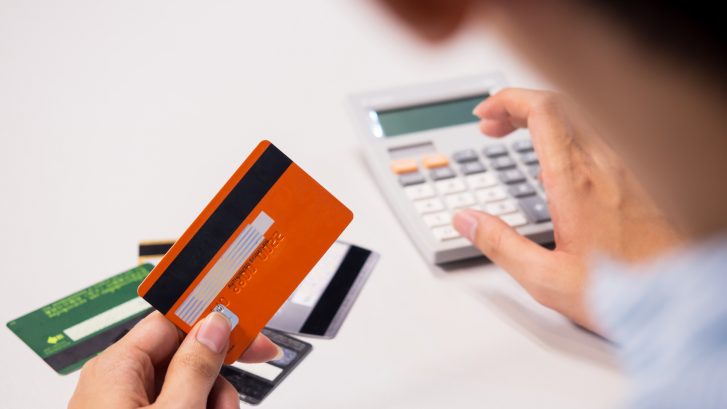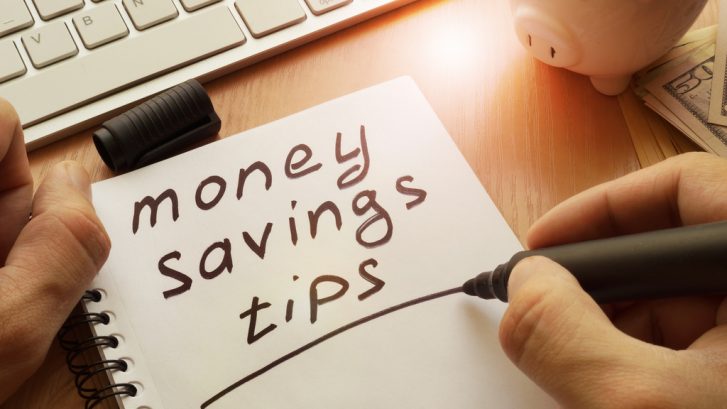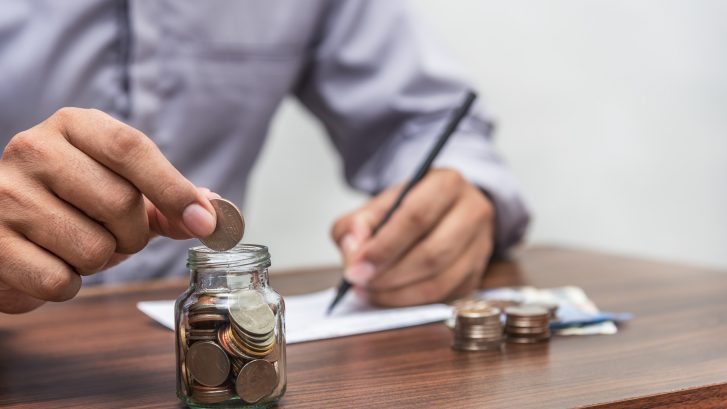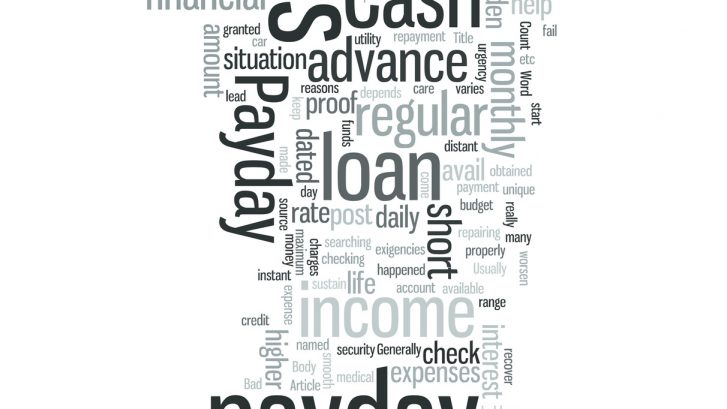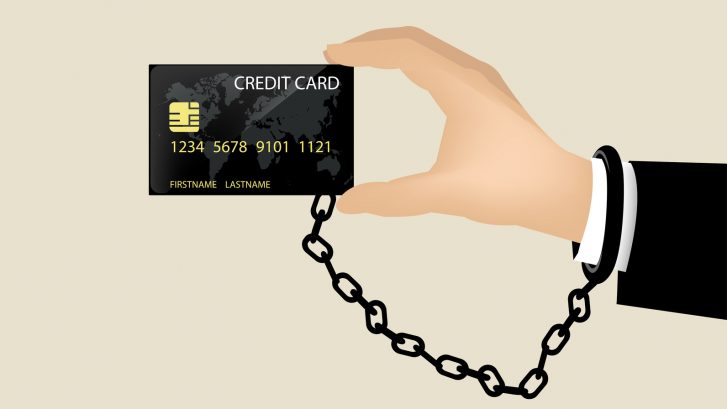In life, death and taxes are certain. For most people, rainy days are also becoming an absolute certainty.
Even if you have a well-paying job or thriving business, you’d be totally unwise to skip saving for a rainy day. In fact, in a country where most people are living from paycheck to paycheck, creating a rainy day fund is extremely important.
One of the biggest reasons people fail to save is not because they lack an adequate income, but because they lack the financial discipline to put some money aside on a regular basis.
Creating a rainy day fund is one the smartest financial things you will ever do. Here’s how to do it quickly and comfortably.
If you have this problem, you’ve come to the right place. Read on to learn 10 strategies you can use to create and maintain a healthy rainy day fund.
1. Give Your Current Budget/Spending Habits a Second Look
Can you account for your money, up to the last coin?
If you can’t, you’re making a major financial mistake, which is living without a budget. And even then, having a budget doesn’t really mean you’re on the right financial path.
The first step to creating a rainy day fund is to study your current budget or expenses and compare it with your monthly income. If your expenses equal or even surpass your income, you need to start cutting back immediately.
Do away with expenses you can live without. For instance, if you’ve multiple TV subscriptions, cancel and remain with one. Love going out for a movie every weekend? How about catching a movie in your living room instead?
That’s the only way you’ll free up your income and have money to start building your emergency fund.
2. Find Another Gig
Let’s be honest: many of us would be better at saving if we made more money.
Unfortunately, not many people have the will to do whatever it takes to put an extra buck in the pocket. You’d rather sit and wait for a promotion than go out and look for a second job, right?
Indeed, the best way to earn more money is to find another gig. If you’re good at writing, designing or even editing, you can find a suitable opportunity online. With the rise of freelancing websites, this shouldn’t be a difficult task.
A second job gives you an additional stream of income, which you can use to create your rainy day fund.
3. Automate Your Finances
Technology has changed how we do a variety of things, from how we work to how we manage our finances.
Today, you don’t have to manually or physically settle your bills. With financial automation solutions, your bills can be paid as soon as they are due, and as long as money is in your account.
Automating your finances reduces financial procrastination.
Say you have some money, which you set aside to pay a certain bill by a certain date. Perhaps you get caught up with work, so you end up postponing the payment of this bill. Before you know it, you’ve already spent the money elsewhere.
With automation, the amount of money you intend to save for a rainy day will always hit the selected account without fail.
4. Find a Saving Buddy
Just like hitting the gym with a workout buddy, you have a better shot of financial success when you have someone with whom to pursue a common financial goal.
Find a friend or relative who also wants to create a rainy day fund, and start the journey together. Motivate and hold each other accountable.
5. Look Out for Sweet Deals
One day, you’ll be so rich price tags will be least of your concerns.
But until then, looking out for deals can make a big a difference in your personal finances.
The good news is you can find deals for pretty much everything, from groceries to clothes and movie tickets. You just need to know where to look.
Besides scouring the web for these deals, make a point to ask your local service providers when they’ll be running a sale, and put a reminder on your phone!
Capitalizing on deals will save you money, money that you can put in your emergency fund.
6. Sell Stuff You Don’t Need
Minimalism is all the rage!
If you’ve stuff you don’t need around your house, you’re not only being uncool, but also sitting on money that could kickstart your rainy day fund.
Seriously, look around for stuff you no longer use and put them up for sale on eBay or Craigslist. Are you a whiskey enthusiast with a collection of rare bottles? They can fetch you a pretty penny.
Use the funds you raise from the sales to create an emergency fund.
7. Read a Lot on Personal Finance Management
Knowledge is power
When you read books, magazines articles and blog posts on personal finances, you’ll have a better grip on how to go about several issues, including saving.
Beyond reading, be sure to follow personal finance experts on social media platforms such as Twitter and Facebook. You won’t miss out on their financial stories and tips.
8. Manage Your Debt (Prioritize Paying Off Sooner)
Loans can swallow a huge chunk of your income and deny you the chance to establish a rainy day fund.
Just think about: if the money you pay in interest rates alone could be going to your savings, by now you could be boasting a healthy emergency fund.
As such, you should make repaying your loans as quickly as possible a top priority. Consolidate credit card debt if you have to, and start off with high-interest loans.
9. Claim Your Tax Refunds
Of what benefit is claiming a $5 expense in tax refunds?
Sure, it might look meager, but several such expenses can quickly add up into a handsome amount. To start claiming tax refunds, you need to know which items are deductible. Then, keep all the relevant receipts, and during tax time, claim your refunds.
Need we tell you the money you get back should go into your rainy day fund?
10. Seek Professional Financial Counseling
On the surface, it looks paradoxical to keep spending more money when your primary goal is to cut back and save.
Sure, seeking professional counsel will set you back a couple of dollars, but it’s completely worth it in the long run.
A professional financial planner will have a thorough look at your personal finances, find gaps, spot extremes, and in the end, advise you on what you need to do to build your rainy day fund.
The Journey to a Healthy Rainy Day Fund Starts Now!
Emergencies are part and parcel of life.
When they knock on your door, it’s in your best interest that they find you armed with a sizeable emergency fund.
With the tips outlined above, now you shouldn’t worry about being caught unawares. You’ve all the information you need to easily start building your fund for tougher times. Start your journey today, and don’t forget to pop back and share your experience with us in the comments section below.
And if you find yourself caught up before you build the fund, feel free to reach out to us for a short term cash advance.


